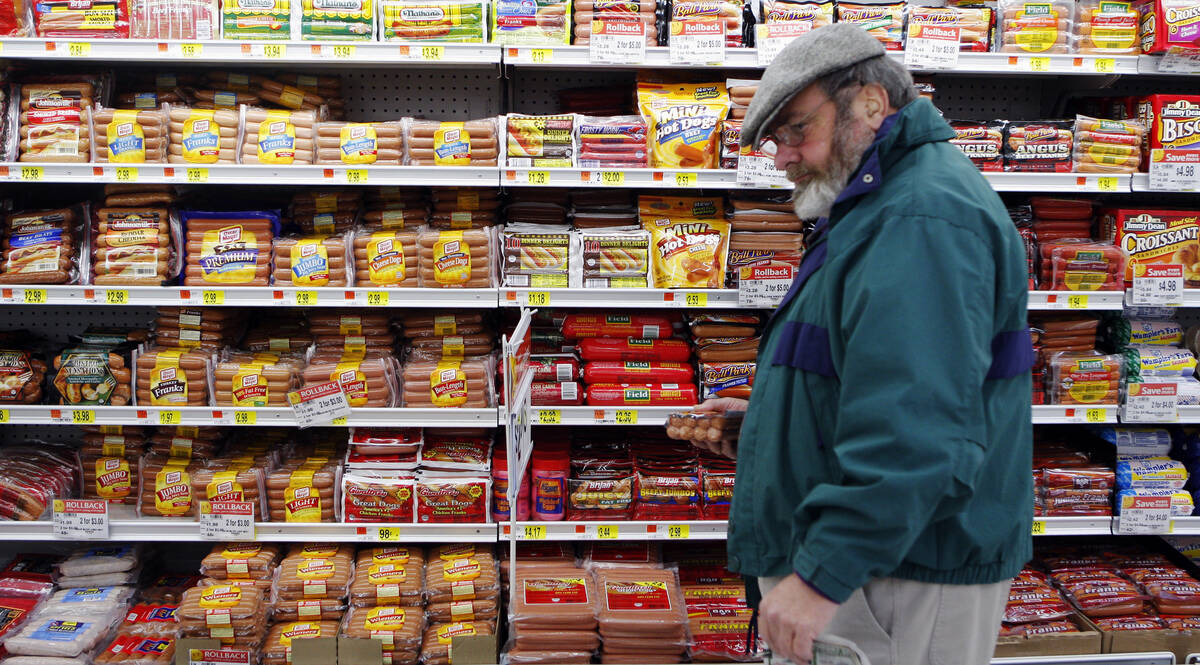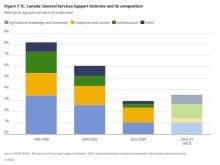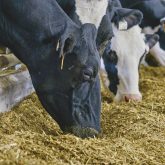Madison, Wisconsin – The price of milk in the United States is stuck at an unprofitable place, and U.S. farmers at the World Dairy Expo did not expect any trade deal with Canada to change that situation.
Most of them had yet to look over the fine details of the new trade deal — the U.S.-Mexico-Canada Trade Agreement.
Why it matters: Dairy farmers in the United States were most concerned about Class 7 milk in Canada competing with their exports, and they are happy to see the class’s elimination.
“I think it’s irresponsible of a country that has 10 times as many cows as our neighbours to the north to dictate to them their dairy policy,” said Tom Kestell, a Waldo, Wisc., dairy farmer. “Their dairy policy works. Ours doesn’t.”

Times are tough and about 500 Wisconsin dairy farms have ceased to operate so far this year.
He called the 3.6 per cent more access to Canada’s market “a joke.”
“We’re talking about three per cent, come on.”
Kestell said the Americans have run the negotiations through the media, playing to President Donald Trump’s base and that’s no way to run a negotiation.
“We have lost markets we are never going to get back,” he said.
Dr. Ben Shelton a veterinarian who runs a 1,250-cow dairy in North Carolina, said he was happy to get the trade deal done, to gain more stability.

“The ag community is generally supportive of what he (President Trump) is doing on trade, even though we’re taking it on the chin,” he said.
A bigger part of the deal for the U.S. was to ensure the Mexican market for milk through the USMCA deal, said Shelton, as Mexican exports represent 5.5 per cent of the American milk market.
“For us, Mexico is huge. We were sweating it out, over that market,” he said.
He also expressed concern about the stubbornly low price for milk in the U.S. and its impact on the American sector. He said a 600-cow farmer went out of business in his area recently. The feed company refused to deliver more feed.
Read Also

Canada seventh-most influential country on agri-food
Report from Dalhousie University and MNP shows Canada ranks seventh among G20 countries on agri-food influence.
“This can’t go on so much longer,” he said.
Ontario dairy farmer Norm McNaughton was at the World Dairy Expo and he said that the U.S. dairy farmers he’s talked to “don’t figure it’s going to have a big, big impact” on the serious financial problems of the U.S. dairy sector.
“The numbers I’ve been quoted on the size of farms and the number of farms going out down here is just astonishing,” he said. “You can see the fear” in dairy farmers at World Dairy Expo, he said.
Organizations that represent farmers also were happy to see more stability in the market, but also knew that there wouldn’t be that much aid for ailing U.S. dairy farmers in the trade deal with Canada.
The Edge co-operative, a farmer co-op that helps farmers reach certifications they need to dairy farm, also has become one of the leading voices for dairy farmers on government lobbying in the Midwest.
Farmers have to be part of some co-operative, said Jamie Mara, Edge’s public relations manager, and about eight years ago Edge provided a more cost-effective option for farmers who ship to private processors.
Edge aims to build the conditions for greater ability for its members to market milk products around the world.
He said the organization doesn’t want to disrupt long-term partnerships, including with Canada, so it is relieved to see a deal completed.
“We were against doing away with NAFTA altogether,” he said.
Class 7 pricing was the biggest issue for them.
“I think there’s a misunderstanding that U.S. dairy farmers wanted supply management to go away in Canada. We never took that position,” he said.
“It’s working in Canada. We don’t feel it’s best for our situation here, but didn’t have designs on that.”
He said they were looking for a level playing field to compete with Canadian product priced under Class 7.
Mara, like Canadian dairy officials, said that there are a lot of details yet to come out. He also cautioned that there could be challenges getting the trade deal through the American Congress.
The 3.6 per cent access is a small improvement, but Mara said the most important concession is on Class 7.
“We value our partnerships with Canada,” he said.















